How to Choose the Right Toronto Piano Teacher for Your Learning Style

Why Finding the Right Piano Teacher Matters
Finding the right Toronto piano teacher can be pivotal to your musical development. Piano teachers come with a wide range of skills, styles, and teaching philosophies that can either complement or conflict with your learning style. By carefully evaluating teaching qualities, methods, and compatibility with your own learning needs, you can ensure a productive and enjoyable learning experience.
The Impact of Teaching Style on Learning
Different teaching styles can dramatically affect a student’s progress. Some piano teachers focus on a structured, disciplined approach, which may benefit students seeking a classical background. On the other hand, a more relaxed and adaptive teaching style can be better suited for students who wish to explore multiple musical genres or pursue piano recreationally. Recognizing the impact of these styles will help students find a teacher aligned with their goals and preferences.
How a Good Teacher Enhances Motivation and Progress
Motivation plays a crucial role in long-term piano success. Piano teachers who can engage students with inspiring lessons, encouragement, and positive reinforcement foster a supportive learning environment. A teacher’s ability to provide constructive feedback while maintaining enthusiasm can help students remain motivated. Motivation fuels consistent practice, essential for skill development and overall enjoyment of piano learning.
Key Qualities to Look for in a Toronto Piano Teacher
Qualifications and Certifications
Many Toronto piano teachers hold certifications such as the Royal Conservatory of Music (RCM) accreditation, which can reflect a high level of musical proficiency. These certifications ensure that the teacher has undergone rigorous training, equipping them to guide students through structured curriculums. Some students may prefer teachers with advanced degrees in music or experience performing, as these qualifications can add depth to their teaching.
Experience and Reputation
Experience often plays a significant role in how effectively a teacher can adapt to different student needs. Piano teachers with years of experience tend to be better at recognizing learning barriers and tailoring their instruction accordingly. Checking reviews or asking for recommendations from past students can provide insight into the teacher’s reputation and teaching effectiveness, helping you make an informed decision.
Patience and Adaptability
Patience is essential for any educator, and Toronto piano teachers are no exception. Teachers who demonstrate patience are more likely to create a comfortable environment for students to make mistakes and learn at their own pace. Adaptability is equally important, as it allows teachers to adjust their methods to match each student’s unique learning style, making lessons more effective and enjoyable.
Communication Skills
Effective communication ensures that students understand concepts clearly and can confidently apply them. Toronto piano teachers who excel in communication can break down complex musical ideas into easily digestible parts. Good communicators also regularly provide feedback, helping students recognize their progress and areas for improvement, making lessons more engaging and productive.
Assessing Your Own Learning Style
Determining Your Musical Goals
Before selecting a piano teacher, it’s essential to define what you hope to achieve. Some students may have specific goals, such as preparing for RCM exams or learning jazz improvisation. Toronto piano teachers vary in specialization, so understanding your goals will guide you toward teachers who can support your aspirations, ensuring that your lessons are relevant and focused.
Identifying Preferred Teaching Approaches
Knowing whether you respond better to a structured curriculum or a more flexible approach can make finding the right teacher easier. Some students thrive under the disciplined structure of classical training, while others enjoy the freedom of contemporary or improvisational methods. Piano teachers often highlight their teaching approach, so students should look for instructors whose methods align with their preferred style of learning.
Recognizing Your Strengths and Challenges
Assessing your strengths and weaknesses as a learner can also guide you to a suitable teacher. If you struggle with sight-reading, for example, look for Toronto piano teachers who emphasize this skill and can offer extra support. Recognizing areas where you need improvement will ensure you find a teacher who can address those challenges effectively, leading to a more rewarding experience.
Different Teaching Styles of Toronto Piano Teachers
Classical vs. Contemporary Focus
Classically trained Toronto piano teachers often emphasize reading music, technical exercises, and following established methods, which can be beneficial for students interested in a formal foundation. Alternatively, contemporary-focused teachers may explore jazz, pop, and other modern styles, catering to students interested in diverse genres. Students should choose a teacher who aligns with their musical interests and future aspirations.
Structured vs. Flexible Lesson Plans
A structured lesson plan is ideal for students seeking consistent progress through organized milestones. Many piano teachers use this approach to help students reach specific goals, such as completing an RCM level. For those interested in more exploration, flexible lesson plans that allow room for improvisation and creative expression may be more appealing.
Exam-Oriented vs. Recreational Learning
Some Toronto piano teachers specialize in preparing students for exams like the RCM, which requires a structured, curriculum-based approach. For students who play piano as a hobby, recreational learning may be preferable, focusing on enjoyment and personal fulfillment rather than exams. Understanding these two approaches will guide you to a teacher whose philosophy matches your needs.
Tips for Finding the Right Piano Teacher in Toronto
Searching for Teachers with Relevant Specializations
Using keywords such as “Toronto piano teachers” or “RCM preparation” in your search can help you find teachers with specific qualifications. If you’re seeking a teacher who specializes in jazz, improvisation, or working with children, searching for these details will help you identify the most relevant teachers. Toronto has a variety of teachers with specialized backgrounds, so honing in on your area of interest will yield better results.
Scheduling a Trial Lesson
Many piano teachers offer trial lessons, allowing potential students to experience their teaching style firsthand. This is a valuable opportunity to observe how the teacher communicates, their level of patience, and whether their style aligns with your learning preferences. A trial lesson can also reveal how comfortable you feel with the teacher, which is crucial for a successful learning relationship.
Evaluating Teacher-Student Compatibility
Compatibility between teacher and student is vital for a successful learning experience. The best piano teachers are those who create a supportive environment and foster a sense of ease during lessons. Compatibility extends beyond teaching methods to include personality and communication style, which can significantly impact how well a student progresses in their studies.
Questions to Ask a Prospective Piano Teacher
What Teaching Methods Do You Use?
Asking about teaching methods helps you determine if a teacher’s approach aligns with your learning preferences. Some Toronto piano teachers focus on strict classical training, while others use a combination of techniques. Understanding the methods used can help you decide if they will meet your goals and maintain your interest.
Do You Offer Customized Lesson Plans?
Customized lesson plans can make learning more relevant to your goals and interests. Many Toronto piano teachers provide tailored lessons that accommodate specific musical tastes, skill levels, and long-term goals. This question can help you assess whether the teacher will adapt their lessons to suit your unique needs and preferences.
How Do You Measure Student Progress?
Knowing how a teacher tracks progress can help students stay motivated and see their improvements over time. Toronto piano teachers may use various methods, from regular assessments to milestone achievements, ensuring that students have a clear sense of their development. Understanding this aspect of their teaching can help you stay engaged and focused.
What Are Your Expectations for Practice?
Different teachers have varying expectations when it comes to practice routines. Some piano teachers may recommend daily practice, while others may be more flexible. Understanding these expectations will help you choose a teacher whose approach to practice aligns with your lifestyle and available time.
Finding the Perfect Fit for Your Musical Journey in Toronto
Choosing the right piano teacher is about finding a balance between qualifications, teaching style, and compatibility with your learning goals. By assessing your personal needs and preferences, asking essential questions, and exploring trial lessons, you can select a teacher who will support and inspire your musical journey.
FAQ
Q: How often should beginners practice piano?
A: For beginners, practicing piano at least 15-30 minutes daily is recommended. Consistent, shorter practice sessions are more effective for building foundational skills than longer, infrequent ones.
Q: Do all Toronto piano teachers offer online lessons?
A: Not all piano teachers offer online lessons, but many do, especially since virtual learning has become more popular. It’s best to confirm with each teacher individually to find out if they provide this option.
Q: Are there piano teachers in Toronto for adult beginners?
A: Yes, many piano teachers specialize in teaching adult beginners and understand the unique challenges and goals of adult students. They often offer flexible lesson plans suited to adult schedules and learning styles.
Q: How do I find a piano teacher for children in Toronto?
A: Finding a piano teacher for children involves looking for teachers with experience working with younger students. Many teachers and music schools in Toronto offer specialized programs designed to engage children through fun and interactive methods.
Q: Can I take trial lessons with piano teachers?
A: Many Toronto piano teachers offer trial lessons to give students a sense of their teaching style before committing. Trial lessons are a valuable opportunity to evaluate compatibility and lesson structure.


